Thick of thigh, pure of heart, dumb of ass, & caffeinated enough to fly without a jet pack.
Don't wanna be here? Send us removal request.
Text

Charlie Vickers BTS from ROPseason 2
By Morwen_Dark_the_Morena
AHHHHHHHHH!!!!! I'M DYING🧎♀️🧎♀️🧎♀️🧎♀️
#the rings of power#charlie vickers#sauron#halbrand#rings of power#trop#annatar#galadriel#haladriel#saurondriel
83 notes
·
View notes
Text
GOOD SHIT
The Mind of Sauron: Control, Deception and Manipulation ( A meta )
Introduction: Why I Wrote This (aka Why I Spiraled into the Mind of a God with Control Issues)
Look. I didn’t plan to spiral into a 7,000-word psychological breakdown of a millennia-old demigod who literally forged evil into jewelry. But here we are.
I spent a bit of time on it. I had to pick out the interviews and could have written so much more, but sometimes less is more. Anyway!
What inspired this? A toxic cosmic control freak. A crying god. A tear. A lie. A forge. A moment. A thousand manipulations. And the absolute audacity of Charlie Vickers’ performance and the showrunners’ layered writing that screamed: he believes his own lies.
I’ve always found Sauron fascinating – not because he’s “sexy evil” (though, let’s not lie, Annatar is stupidly hot), (or that he is my favourite character) but because he’s terrifyingly consistent in his need for order, control, and self-deception. He’s not evil because he wants to burn the world. He’s evil because he loves the world – conditionally. As long as it obeys.
This meta is my attempt to understand him. Not to redeem him (lol no), not trying to pacify Sauron but to peel back the layers of arrogance, delusion, manipulation, and deep-rooted trauma. To trace how a being born of Aulë’s light ends up crying over a dead smith he just murdered, then walks away like nothing happened. (moron)
It’s also about how no one – not Celebrimbor, not Galadriel, not even Sauron himself – is immune to the trap he lays.
So buckle in. We’re going deep. Into denial. Into power. Into darkness. Into that moment he said, “You’re going to give it to me.” Because this isn’t just about villains. This is about the villain who believed he was the hero.
And just to be clear:
I’m not saying Sauron is some “emotionless dark void of doom who just vibes in Mordor.”
Quite the opposite. He feels. He hates.
He is angry, arrogant, obsessive, manipulative, wounded, brilliant, relentless — and yes, sometimes he even cries. (what a loser)
Sauron is not a flat villain. He’s a canonically complex, terrifyingly consistent, three-dimensional character — and the show (for once) treats him like it.
This post is for everyone who looks at him and goes:
“Wait. He’s not just the bad guy..“ (well actually he is)
I don’t need people to like him.
I just need them to understand him.
LET GET IN:
I. The Self-Deceiver
One of the most psychologically compelling elements of The Rings of Power is the portrayal of Sauron not as an overtly malicious force, but as a deeply self-deceived being — someone who truly believes he is saving the world. His evil is not born of hatred for Arda, but from a warped, twisted sense of love: a conditional love that demands obedience, perfection, and control.
“He’s in denial, but there’s probably a little element of him that realizes that. […] There’s an element of him that would have that self-awareness, that would be, ‘I’ve gone down this rabbit hole now.’ But as much as he realizes that, he’s trying to crush those feelings as he goes and advances forward.”
— Charlie Vickers
Sauron’s denial is not simply a facade for others — it’s a lie he tells himself. He is emotionally intelligent enough to deceive with precision, yet emotionally fractured enough to believe his own performance. He is not unaware of his fall, but he represses that awareness, knowing he cannot afford to pause and reflect. To do so would risk collapse. He marches deeper into tyranny, clinging to the idea that it is all necessary — that it’s still for a greater good.
“He thinks Middle-earth could be beautiful — if everyone just listened to him.”
— Charlie Vickers
Therein lies the tragedy. His vision of peace is absolute order. His concept of healing is domination. His desire to “fix” Middle-earth is rooted in a compulsion to remake the world in his own image — and he believes he has the right, even the duty, to do so.
“I think that there’s that inherent side of him that it’s just like, ‘I’m going to control and heal and fix Middle-earth because it’s in my nature.’”
— Charlie Vickers
This is not new. As the showrunners remind us, even Tolkien described Sauron as “not evil in the beginning.” His desire for order, for structure, came from a real place — but it festered, darkened, calcified into tyranny. His denial is what shields him from recognizing that he has become the very thing he once sought to correct.
“Nothing is evil in the beginning, even Sauron was not so.”
— J.R.R. Tolkien, quoted in the show and emphasized by the showrunners
By Season 2, this denial has begun to erode. He lashes out, loses control, and in moments of failure — like Celebrimbor’s resistance or Galadriel’s rejection — we see the cracks in the mask. But even then, he doubles down.
“He is falling deeper and deeper down the rabbit hole.”
— Charlie Vickers
He cannot stop. He cannot change. Not because he’s incapable, but because he believes that to change is to surrender — and surrender, to him, is the ultimate failure.
At the heart of Sauron’s denial lies something deeper: a near-divine perfectionism rooted in his origin as a Maia of Aulë — the Vala of craft, logic, and structure. Sauron was not bred for chaos. He was born from the very impulse that seeks symmetry in the world. And that instinct has metastasized into an obsession.
After all he was a pupil of Aulë. His nature is to build and refine and create order. But eventually, it becomes: ‘If it’s not perfect, it must be corrected. If it disobeys, it must be reshaped.“
This isn’t just about power. It’s about needing things — people, systems, entire civilizations — to align with his internal blueprint of harmony. That’s what makes his manipulation so dangerous: he genuinely believes he’s fixing a broken world, even as he breaks it further.
And in that way, he doesn’t see himself as a tyrant. He sees himself as a craftsman… who simply uses people as raw material.
II. The Manipulator: Weaponizing Truth
Sauron doesn’t conquer with brute force — at least not at first. His greatest weapon isn’t a blade or a ring — it’s the truth, carefully tailored and strategically delivered. His manipulation isn’t built on deception in the traditional sense. What makes him truly dangerous is that he tells the truth — just not all of it.
This is what the showrunners of The Rings of Power emphasize as central to their interpretation of Sauron:
“He doesn’t lie. He just tells the version of the truth that serves him best.”
— Patrick McKay
This philosophy is what allows him to infiltrate others so effectively. He listens — deeply. He identifies not just your weaknesses, but your wants. And then he becomes the answer to them. This is not manipulation in the crude sense of flattery or flimsiness. It’s methodical. Clinical. Intimate.
“He sees you completely—not just who you are, but who you want to be. He can be the answer to all your wishes and all your problems.”
— J.D. Payne
This quote reveals the core of his strategy. He doesn’t force himself into someone’s trust — he makes them want to believe him. Whether it’s Galadriel’s grief, Celebrimbor’s hunger for legacy, or the desperation of Men, Sauron studies his target until he knows exactly how to slip past their defenses.
We see this most clearly in his conversation with Galadriel in the Season 1 finale. He never denies who he is. Instead, he reframes it — “You’re not seeing what I’m offering.” It’s not a lie. It’s a recontextualization. And to someone emotionally vulnerable, it almost works.
“The way you beat your enemies is to figure out what they need and figure out how to give it to them. Help them master their fear, and then you can master them.”
— Sauron (as Halbrand)
This line is more than a tactic — it’s his entire doctrine. He believes people are ruled by fear. And if he can offer them control over that fear — whether through power, guidance, or clarity — he earns their loyalty. Their trust. Their surrender.
Why Sauron’s Manipulation Feels So Intimate
What sets Sauron apart from other villains is the emotional precision of his tactics. He doesn’t try to break people with cruelty — not at first. He breaks them with hope. With gentleness. With honesty.
He knows that the truth, when framed correctly, is far more persuasive than any lie.
“You can tell someone the truth — and still keep them exactly where you want them.”
That’s why his conversations always feel layered. Even as Halbrand, every word he says carries a double meaning. Whether it’s “Looks can be deceiving,” or “I’m sorry about your brother,” the viewer is left wondering: is this genuine empathy, or is it another trap?
“Is he saying something because he believes it, or because he’s trying to get something? Or both?”
— J.D. Payne
And therein lies the horror — the answer is both.
In Season 2, Sauron’s manipulative tactics become more pronounced as he exploits the vulnerabilities of various characters. His interactions with Galadriel, Celebrimbor, and others showcase his ability to present himself as a benevolent figure, all while orchestrating events to his advantage.
“We saw in season one that Galadriel… her pride and her PTSD were a crack that he could get into and manipulate her to get everything he wanted. Now he’s going to do that with everybody.”
— Patrick McKay
Sauron’s manipulation isn’t just about achieving his goals; it’s about reshaping the very fabric of Middle-earth. By exploiting the cracks in societies and individuals, he aims to mold the world into his vision of order and perfection.
“What is going to be happening over the course of season two is, every single one of these societies and heroes that we set up in season one, are now facing serious cracks in the foundation that Sauron can exploit.”
— Patrick McKay
His manipulative prowess is further exemplified in his relationship with Celebrimbor for example. By presenting himself as a knowledgeable ally, Sauron gains Celebrimbor’s trust, guiding him to forge the Rings of Power, instruments that ultimately serve Sauron’s desire for control.
“He’s trying to manipulate him. He’s trying to get Celebrimbor to do something.”
— Patrick McKay,
Sauron’s manipulation is a testament to his deep understanding of psychology and human (and elven) nature. He doesn’t force his will upon others; he makes them believe it’s their own choice, their own desire, that leads them down the path he has laid out.
Sauron is a shapeshifter not just in form, but in meaning. Every line of dialogue is a crafted instrument, playing multiple melodies depending on who hears them. And that’s what makes him so dangerous: he doesn’t just deceive you — he lets you deceive yourself.
III. The Cosmic Connection: Sauron and Galadriel
The relationship between Sauron and Galadriel in The Rings of Power transcends traditional notions of good versus evil. It’s a complex interplay of shared experiences, mutual recognition, and a profound, albeit unsettling, connection that binds them across time
The connection between Sauron and Galadriel in The Rings of Power is not a romantic entanglement—it is a clash of titanic beings, bound by power, purpose, and paradox. As showrunner Patrick McKay stated, their relationship explores “the idea of a non-romantic, cosmic connection,” one that is “pregnant with possibilities.” They are equals only in the sense that they are both other—not ordinary, not bound by mortal limits, and burdened by destinies too large to carry alone.
Morfydd Clark, who portrays Galadriel, acknowledges this unique bond:
“They’re both magical, powerful beings, and I think there is something lonely to existing in that kind of sphere that they both are in. But yeah, there is some sort of cosmic connection.“
— Morfydd Clark
This “cosmic connection” is not rooted in romance but in a shared understanding of power, isolation, and the burdens they carry. Charlie Vickers, who plays Sauron, elaborates on this psychic link:
“I think they’re connected, if not by proximity then by their psyche. They’re higher beings so I’m sure it runs deeper than being in the same place together.”
— Charlie Vickers
Yet, this connection becomes a battlefield. Vickers explains that the final fight between Sauron and Galadriel in Season 2 is nothing less than an attempted execution—stripped of illusion, full of wrath:
“He starts off very economical with his movements and it’s effortless, in deflecting, and then he requires to give more and more to the fight, in order to try and kill her.”
— Charlie Vickers
Their interactions are marked by a tension that oscillates between mutual respect and ideological opposition. Sauron’s offer to Galadriel to rule beside him is not a gesture of equality but a manipulation, an attempt to bind her to his will. Galadriel’s rejection of this offer is a pivotal moment, asserting her autonomy and moral compass.
In that moment, Sauron abandons even the façade of alliance. There is no “we.” There is no “partnership.” The door to any form of union has been slammed shut—and he knows it.
The psychological impact of their connection is profound. Galadriel is haunted by her association with Sauron, grappling with the realization that she was deceived by someone she considered an ally. This internal conflict adds depth to her character, highlighting the complexities of trust, betrayal, and resilience. 
In Season 2, their dynamic culminates in a climactic confrontation. Director Charlotte Brändström drew inspiration from iconic duels, such as those in The Duelists and Zorro films, to choreograph their intense sword fight. The battle is not just physical but psychological, with Sauron employing shape-shifting tactics to destabilize Galadriel. Brändström explained that Sauron’s shapeshifting during the fight was a response to feeling weakened after Galadriel managed to knock him down, prompting him to reassert his power and destabilize her. (mocking)
This confrontation underscores the fundamental opposition between them. Galadriel embodies the light, resisting Sauron’s darkness and manipulation. Their relationship is a manifestation of the eternal struggle between good and evil, with Galadriel emerging as Sauron’s primary adversary, reflecting Tolkien’s portrayal of their roles in the broader narrative. 
Final Note: The Severing of the Cosmic Bond
If their connection once held a strange, terrible allure—something that could have become an alliance, a merging of opposites—then that possibility dies the moment Galadriel jumps.
Charlie Vickers describes that exact moment of disillusionment for Sauron:
“He’s convinced in that moment that she’s giving [him the ring] – he can’t see any alternative because he’s so arrogant and thinks he’s the man, and she’s giving him the ring, and he’s like, ‘You’re going to give it to me, you’re going to give it to me.’ And then she resists him and jumps off the cliff. It’s just like he could not fathom that was possible. So I think he’s dealing with that, and also he knows she’s not going to die.”
— Charlie Vickers, interview
This isn’t just rejection. This is repudiation. It’s Galadriel choosing death over him—not metaphorical, not political, but literal. She refuses him in the most final, unforgiving way imaginable. And that breaks something.
Morfydd Clark confirms that interpretation from Galadriel’s perspective:
“I think it was her severing the tie between them, and her also choosing that it’s better to be part of Middle-earth, kind of dead, than be alive by his side.”
— Morfydd Clark, interview
This is the collapse of everything Sauron built—the illusion, the potential union, the fantasy of control. And that is where the hatred solidifies. That is where Galadriel becomes, not just an obstacle, but the incarnation of defiance. The living proof that his order is not irresistible. That his will can be defied.
He does not love her. Not even like her at all. But respect her in a deep way.
He cannot understand her. But he will remember her.
Because in choosing to jump, Galadriel did what no one else dared:
She said no to a demigod and meant it.
And that is how a connection born of power becomes a war born of rejection and deep hate.
IV. The Craftsman — Celebrimbor and the Rings
Celebrimbor, stands as a pivotal figure in the forging of the Rings of Power. His collaboration with Sauron, under the guise of Annatar, marks a significant turning point in Middle-earth’s history.
Sauron’s manipulation of Celebrimbor is a masterclass in deception. Presenting himself as a benevolent figure, Sauron appeals to Celebrimbor’s desire for knowledge and legacy. This relationship is not merely transactional but deeply psychological, with Sauron exploiting Celebrimbor’s vulnerabilities.
“You want to set (Celebrimbor) up so that he’s ready to receive what Annatar brings, as in he’s got to be at a particular stage of vulnerability or uncertainty to be a juicy bit of prey for the predator.”
— Charles Edwards
The forging of the Rings, particularly the Nine for Men and the Seven for Dwarves, is a testament to Sauron’s cunning. While the Elven rings were crafted without his direct influence, the others bear his mark, designed to ensnare and corrupt.
“The rings that were created for Elves… were not influenced by Sauron… However, new rings that are now created in Celebrimbor’s forge… are slowly poisoning the minds of the individuals who carry them.”
— JD Payne & Patrick McKay
Celebrimbor’s tragic arc culminates in his realization of Sauron’s true identity and intentions. This revelation is not only a personal betrayal but also a catastrophic event for the Elves and Middle-earth at large.
“The way that Celebrimbor fights back is great. There’s an episode towards the end, the way Celebrimbor starts to see what has been done to him.”
— Charles Edwards
The dynamic between Sauron and Celebrimbor serves as a cautionary tale about the perils of unchecked ambition and the seductive nature of power. Their relationship, built on manipulation and deceit, underscores the central themes of corruption and the loss of innocence in Tolkien’s legendarium.
In a poignant moment, after Sauron kills Celebrimbor, he sheds a tear. This act is not born out of remorse for Celebrimbor’s death but rather a reflection of Sauron’s own internal conflict and recognition of his descent into darkness. As Charlie Vickers explains:
“I don’t think he wanted to kill him in that moment, but he lost control, which is very Sauron… the tear (he cries) is probably more about his own reflection on himself, what he has become, and his history with Morgoth.”
— Charlie Vickers
This moment underscores the complexity of Sauron’s character—a being torn between his desire for order and the destructive path he has chosen. The tear signifies a fleeting glimpse of self-awareness, a recognition of the cost of his actions, and the irreversible path he has embarked upon.
The Parallels: Celebrimbor and Galadriel — the Price of Wanting More
In the end, both Celebrimbor and Galadriel are not simply victims of deception — they are the perfect targets. Not because they are weak, but because they desire. Because they long for more.
Sauron doesn’t dominate with brute force — not yet. He infiltrates through dreams.
Celebrimbor wants to craft something immortal. Something beyond even Fëanor. A creation that would outlast time.
Galadriel wants to end evil. Having her own realm in a way. To create peace. Her peace. Even if that peace demands conquest.
And Sauron? He offers both exactly what they long for.
To Celebrimbor, he whispers: “With my help, you could craft the greatest work the world has ever known.”
To Galadriel, he promises: “Together, we can make a realm of our own.”
He knows precisely where to press.
“They could have done really great things together. Celebrimbor could have been an amazing tool, but he killed him. And I don’t think he wanted to kill him in that moment, but he lost control, which is very Sauron.”
— Charlie Vickers
“He’s convinced in that moment that she’s giving [him the ring] — he can’t see any alternative because he’s so arrogant… And then she resists him. He could not fathom that was possible.”
— Charlie Vickers
In both cases, his downfall begins not with brute defeat, but resistance. When Galadriel refuses. When Celebrimbor sees through the illusion.
But the true horror lies not only in what Sauron does — but in how easily he gets in.
He does not kick in the doors. He walks through them, invited.
No one is safe.
Not the wisest.
Not the proudest.
Not even the best.
Because Sauron doesn’t corrupt the wicked — he seduces the noble.
Afterword: Yes, I’m Still Thinking About Him. No, I’m Not Okay.
So. If you made it this far: congratulations. You now know more about Sauron’s emotional damage, tactical manipulation skills, and god-tier self-denial than most of Númenor ever did.
(And look how they turned out.)
We’ve cried with him (well, watched him cry and immediately questioned it), yelled at him through our screens, side-eyed him in Eregion, and maybe — just maybe — found ourselves whispering “okay but the Annatar aesthetic was kinda perfect.”
But let’s be serious for a hot second:
This was never about redeeming Sauron. Or feeling sorry for him. Because there is nothing to feel sorry for.
This was about understanding what makes him terrifying.
Not his power. Not his armies.
But his ability to walk into your city, your forge, your trauma — and offer you exactly what you didn’t know you were desperate for.
He doesn’t take control.
You give it to him.
That’s what makes him dangerous.
He doesn’t want to be loved.
He wants to be right.
And if the world has to burn for that to happen —
well. That’s just unfortunate logistics.
So yeah. I’m not okay.
I overanalyzed a god with a superiority complex, projection issues, and weaponized charisma.
I saw myself in him and then had to go sit in a field for three hours.
And I’ll probably do it again.
Because that’s the thing about Sauron.
He gets in your head.
Even when he loses.
Especially when he loses.
Thanks for reading
PS:
If you’ve made it to the end (first of all: you’re a champion), I’d genuinely love to hear your thoughts!
Did something resonate with you? Do you disagree with something? Want to add your own spicy Sauron theory or just scream about Annatar’s hair with me?
My ask box is open, my reblogs are sacred, and my brain is permanently occupied by one manipulative Maia with boundary issues. Feel free to add things as well!
Let’s talk.
50 notes
·
View notes
Text
I would watch a full 15 season show with him forging random ass shit. I wouldn’t need anything else.






𝐂𝐇𝐀𝐑𝐋𝐈𝐄 𝐕𝐈𝐂𝐊𝐄𝐑𝐒 as 𝐒𝐀𝐔𝐑𝐎𝐍/𝐇𝐀𝐋𝐁𝐑𝐀𝐍𝐃
The Lord of the Rings: The Rings of Power Season 1, Episode 5.
#charlie vickers#sauron#halbrand#the rings of power#gif show: the rings of power.#ropedit#tropedit#i need him biblically
199 notes
·
View notes
Text
Sauron be like

"Touch the darkness ONCE MORE"... "Surely you of all Elves must understand that to find the light... WE must first touch the darkness"...
Sauron sweetie you could have just said "Let's fuck (once more)", you wouldn't have been more obvious.
#sauron#haladriel#saurondriel#sauron x galadriel#galadriel x halbrand#trop crack#the rings of power#halbrand#charlie vickers#galadriel
105 notes
·
View notes
Text

Y’all can’t lie to us
her season one love interest, Halbrand ☺️

via Deadline
82 notes
·
View notes
Text


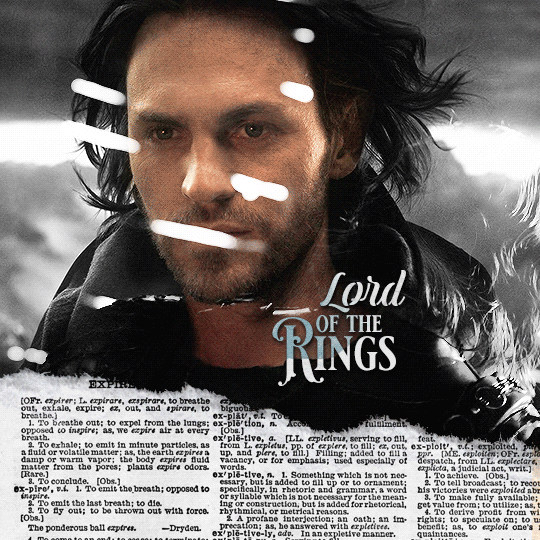
sauron + black for @rhaenyradaemons - happy birthday julia! 🖤
[insp.]
#holy hell these visuals are stunning#tropedit#sauron#the rings of power#halbrand#charlie vickers#rings of power#rings of power s1#rings of power s2
333 notes
·
View notes
Text
Look at this moron. He's so happy.

#Mairon my beloved#mairon#halbrand#trop#the rings of power#trop season 1#the rings of power season 1#I can’t with this adorable dork
117 notes
·
View notes
Text
I am a feral bastard & I will be fucking people up this year

Sorry I can’t stop and I keep forgetting to put my name on them but oh well 😉
#sauron#rings of power#annatar#the rings of power#watch me bitch#on a scale from 1 to 10 my friend you’re FUCKED#new years resolution
298 notes
·
View notes
Text
Welp, already started & finished my first book of the year. Not how I thought today would go.
Bite me, productivity gods.
#bookstagram#bookworm#book blog#books and reading#books#bookish#booknerd#reading#reader#reading in bed#i feel gutted#pain by books
2 notes
·
View notes
Text
I love this smug bastard & I’m not even sorry



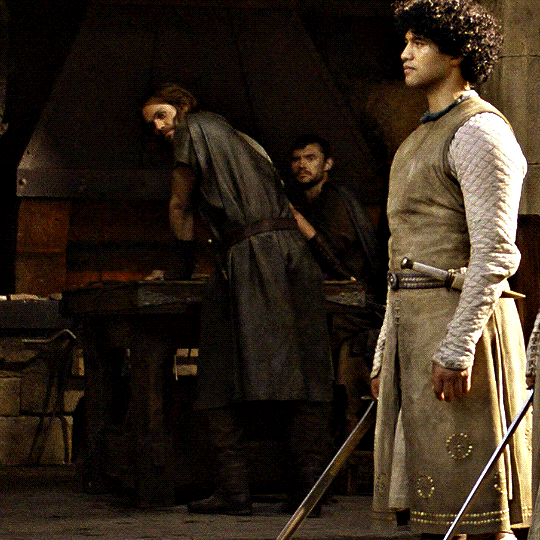


Halbrand watches Galadriel sparring THE RINGS OF POWER — 1.05 "Partings"
#the rings of power#tropedit#ropedit#haladriel#saurondriel#tolkienedit#lotredit#tolkiensource#ringsofpowersource#galadriel x halbrand#sauron x galadriel#galadriel#halbrand
2K notes
·
View notes
Text

Can’t forget this one


#haladriel#saurondriel#sauron x galadriel#galadriel x halbrand#charlie vickers#halbrand#sauron#the rings of power#annatar#galadriel#morfydd clark#trop
134 notes
·
View notes
Text

Just makes me wanna
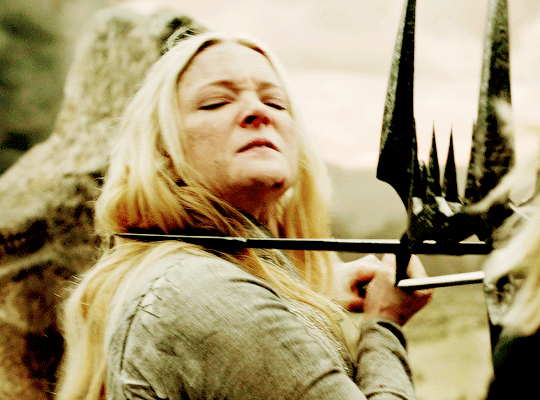

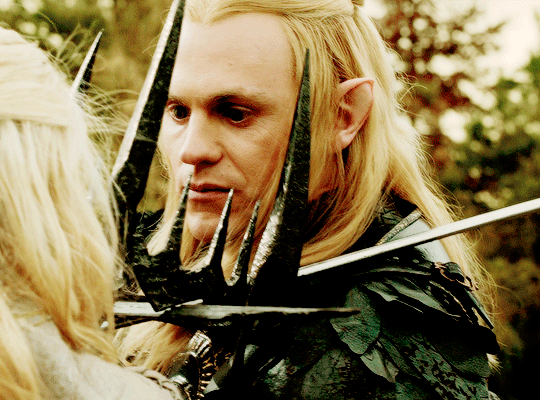
Morfydd Clark: We had this moment where they’re getting physically close, where they’re almost pinning each other, where they’re choosing to not inflict pain or to inflict pain, because I feel like Sauron could have inflicted more pain.
(requested by anon)
#tropedit#ropedit#haladriel#saurondriel#haladrieledit#haladrielcentral#the rings of power#rings of power#ringsofpoweredit#galadriel#sauron
281 notes
·
View notes
Text
So this is the perfect “What If” song for Haladriel/Saurondriel, & if anyone wants to make an edit with them, can y’all tag me?? I need it on an unhealthy level.
#halbrand#the rings of power#charlie vickers#sauron#lord of the rings: the rings of power#Galadriel#annatar#mairon#artanis#morfydd clark#rings of power#rings of power edit#middle earth#haladriel#saurondriel#Spotify#trop#trop season 1#trop season 2#haladrieledit
8 notes
·
View notes
Text
Damn, he fine






Sauron + 🥵💦
The Rings of Power (2022-)
#the rings of power#charlie vickers#sauron#halbrand#annatar#tolkienedit#trop#feeling feral right now#UUUUUUMMMMMMMMM
732 notes
·
View notes
Text
This entire gif set is ethereal, I swear.



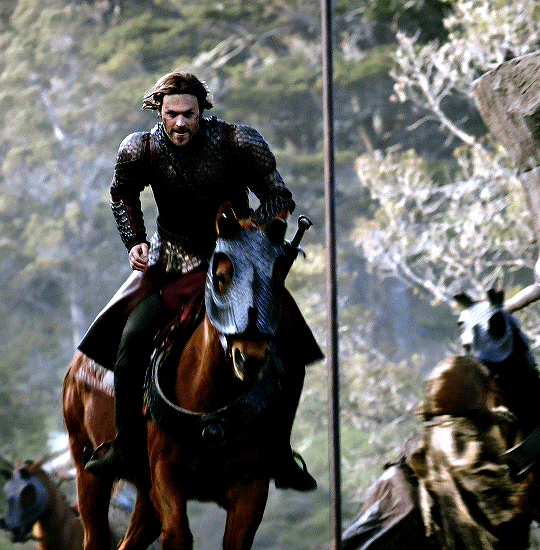
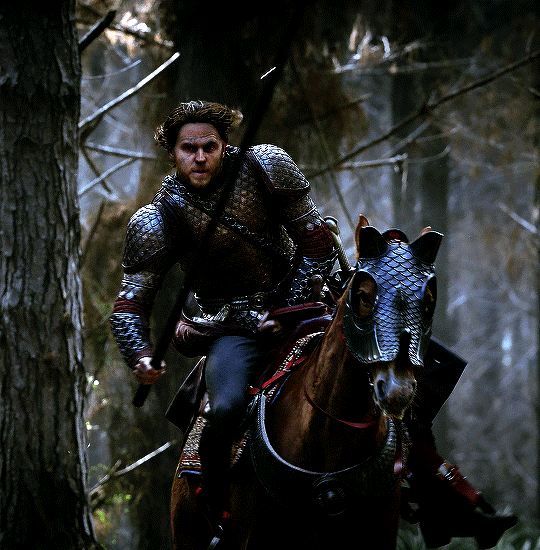
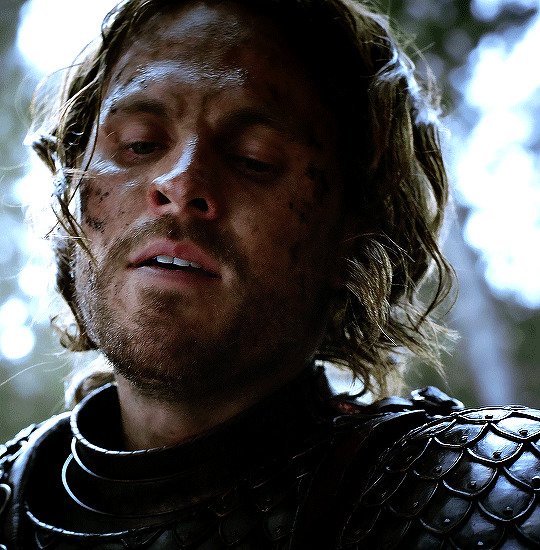
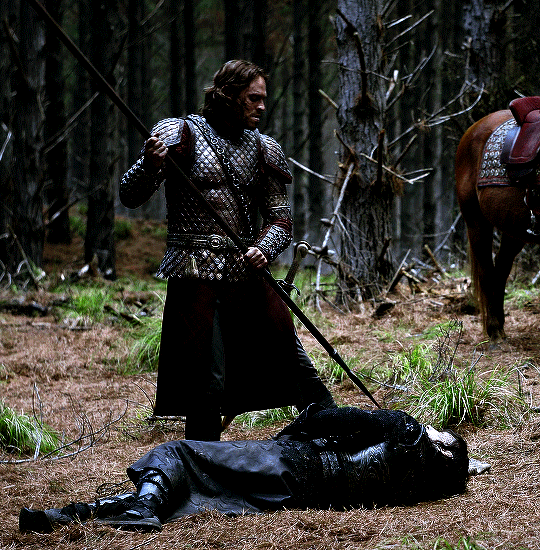
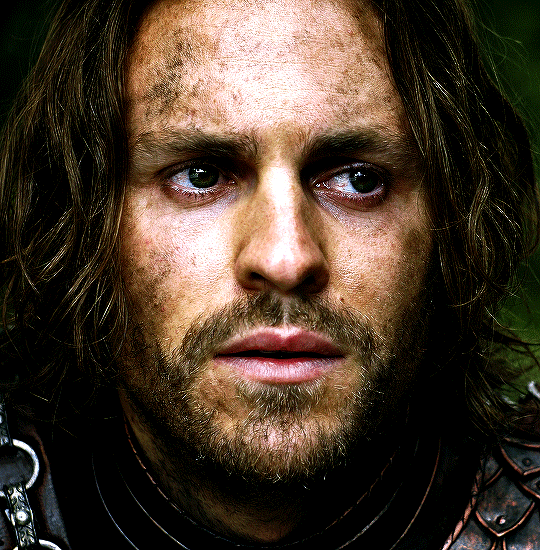

Halbrand in his armor + his dirty grimy face
requested by @withered-rose-with-thorns
714 notes
·
View notes
Text
Sauron: You can’t make everyone like you. You’re not Galadriel.
Witch King: What? Not everyone likes Galadriel.
Sauron: Who doesn’t?
Witch King: Well-
Sauron: Names, now. Give me their names.
281 notes
·
View notes
Text
WE’RE AT 75,001 SIGNATURES

22 notes
·
View notes